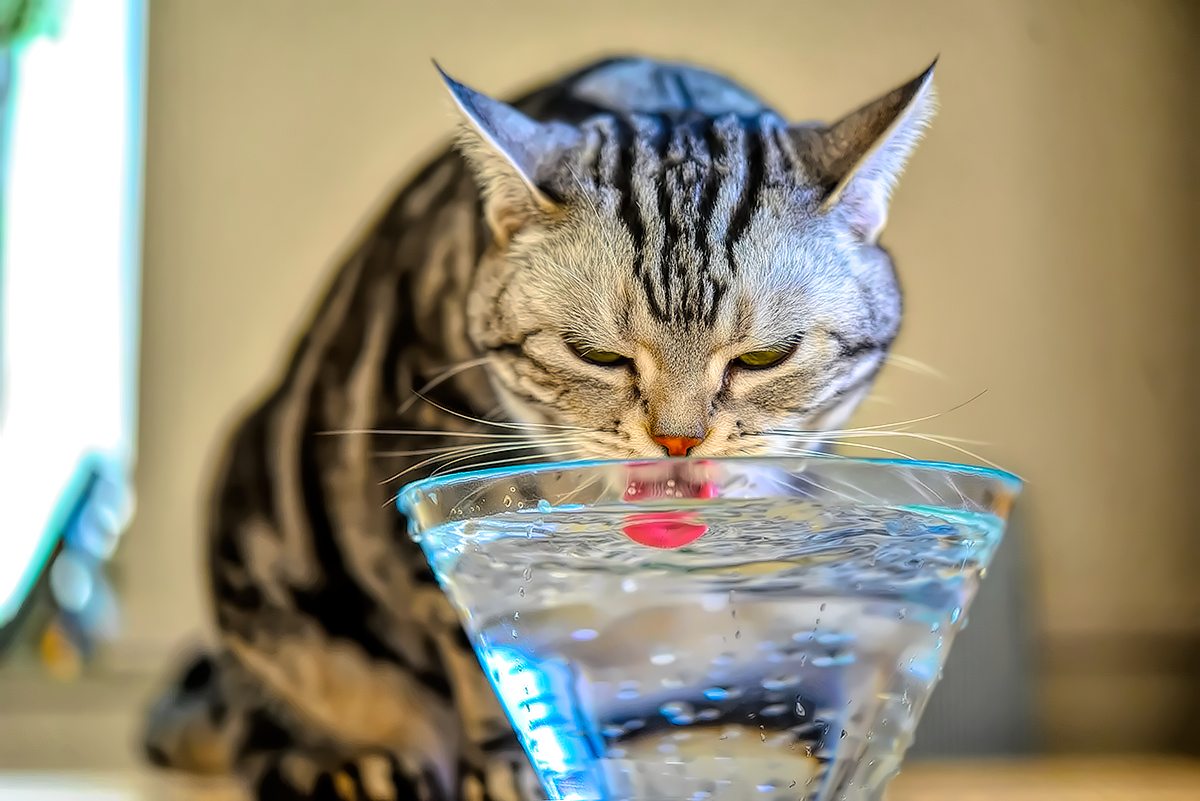Why Dehydration is Dangerous for Dementia and How to Prevent It
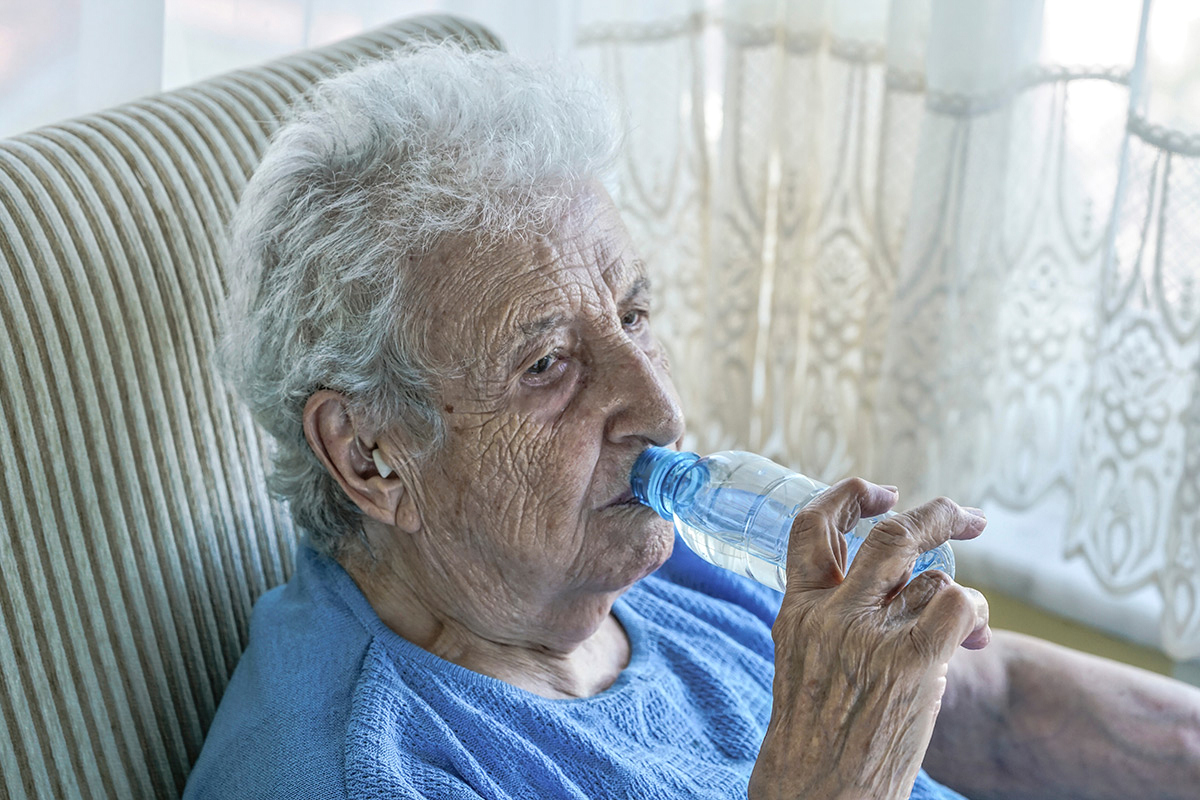
Dehydration and Dementia?
We’ve all heard it countless times:
Hydration is important.
Drink eight glasses of water a day.
Our bodies are made up of 70% water.
Although we know hydration is important, how many of us actually get the adequate amount of water we need each day? How many of us make hydration a priority? How many of us truly understand why hydration matters?
Probably not many of us. While hydration is important for everyone; it’s especially important for older adults. And it’s crucially important for those who are living with dementia.

Why Hydration Matters
Hydration has numerous benefits for our physical health. It keeps our organs functioning properly, our cells nourished, our joints lubricated, and it regulates our body temperature.
But we often forget that physical health includes brain health, which hydration is essential for. Our brains contain a large amount of water and need proper hydration to function correctly. If we’re dehydrated, our brains have to work harder to operate. For an older adult, this can significantly impair cognitive function. A lack of hydration can affect short-term and long-term memory, and it can cause brain fog, anger and depression.
Researchers continue to study dehydration and its effects on the brain. While it has not been proven that chronic dehydration can cause dementia, as this article states, “it is clear that dehydrated cells are associated with brain dysfunction.” This is why hydration matters so much for someone who is already experiencing cognitive decline.
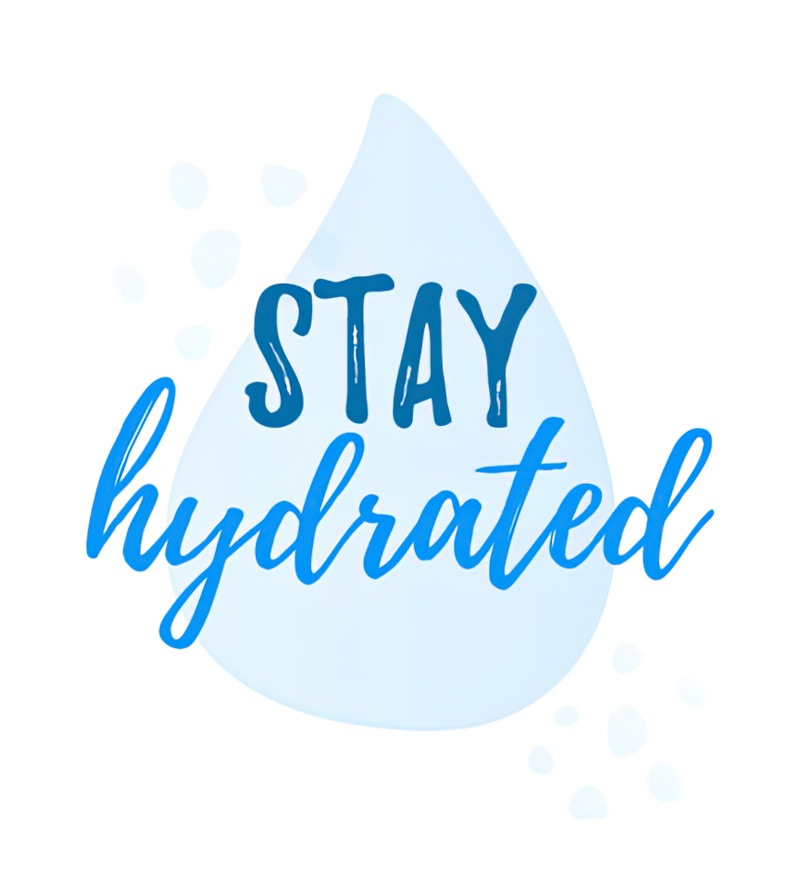
Older Adults and Dehydration
Older adults are at a higher risk for dehydration based on their changing body composition. As you age, you lose muscle. Muscle contains much more water than fat, so a decrease in muscle is a decrease in water being stored in the body.
In addition, thirst cues change as you age. Older adults are not as sensitive to their own thirst, so they may not realize how much water they need or recognize their own thirst.
For older adults who are living with dementia, dehydration is an even greater risk due to cognitive decline, which can cause them to…
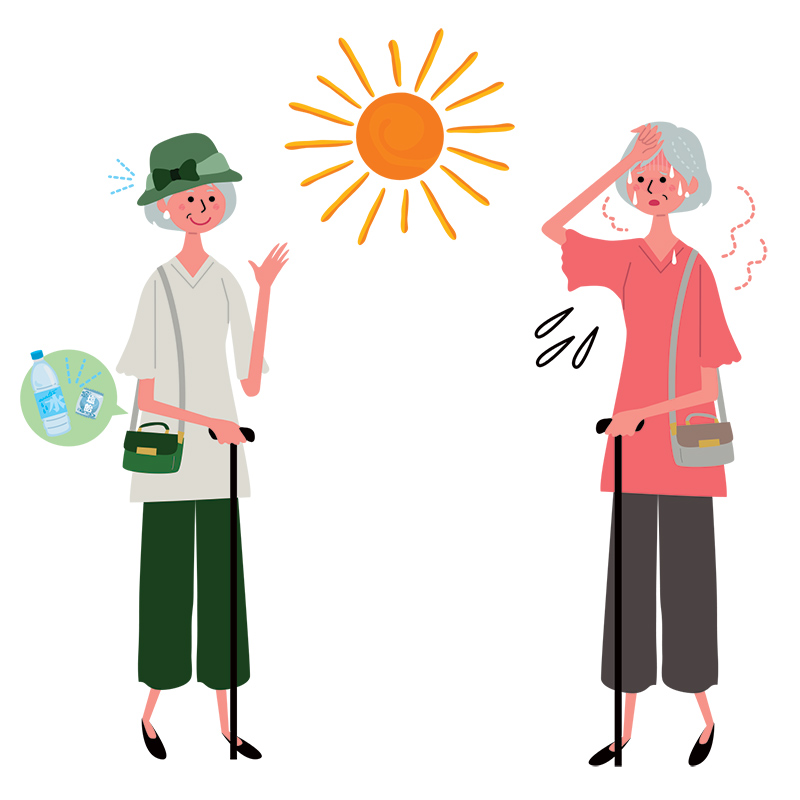
Signs of Dehydration and Dementia
Dehydration is one of the main reasons older adults, especially those with dementia or Alzheimer’s, end up in the emergency room. It can get unmanageable quickly, causing a host of other health concerns, such as urinary tract infections, confusion, severe fatigue, anger, depression, and low blood pressure—all of which can exacerbate dementia symptoms. This is why it’s important for caretakers to know the signs of dehydration and intervene as quickly as possible.
Signs your loved one may be dehydrated include:
If you notice any of these signs in your loved one, call your medical provider right away.
How to Stay Hydrated with Dementia
Caregivers, you probably know how important hydration is for your loved one, but you also know how difficult it can be to get your loved one to drink throughout the day. They may not think they need to drink, they may be struggling with one of the risk factors we listed above, or they may simply be exercising the little control they have left, which is resisting their caregivers.
If you’re struggling to keep your loved one hydrated, neuropsychologist and the founder of Careblazers Dr. Natali Edmonds has several tips for caregivers on how to keep their loved ones drinking throughout the day:
1. Model proper hydration yourself.
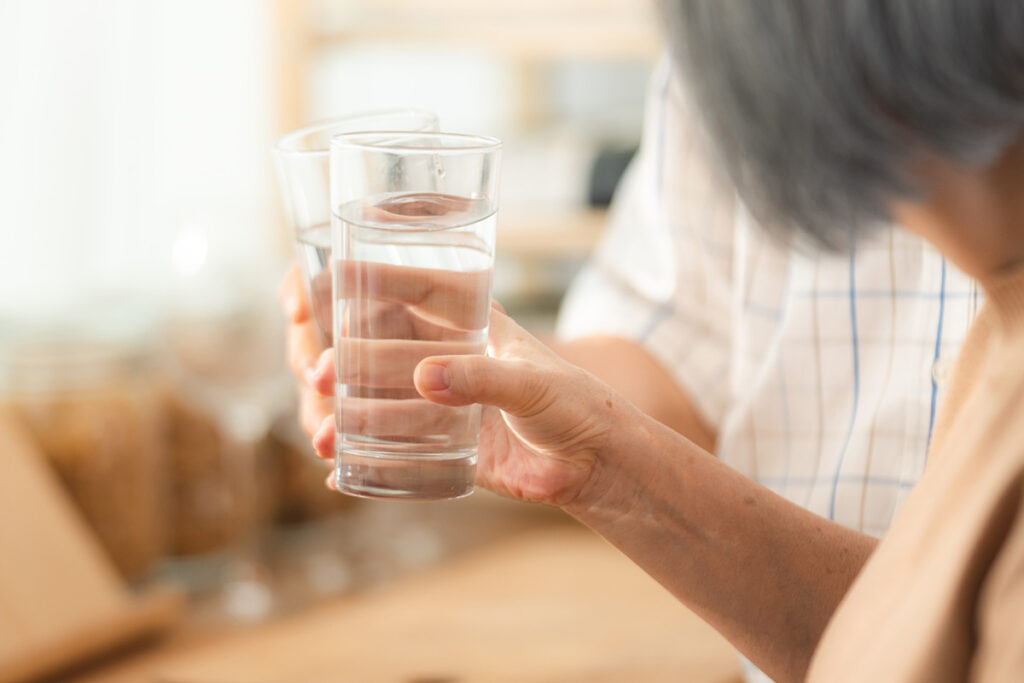
You don’t have to have dementia to forget to drink water. If you are consistently drinking throughout the day, your loved one will notice and may be more willing to participate.
2. Pay attention to what type of glass or cup they’re using.
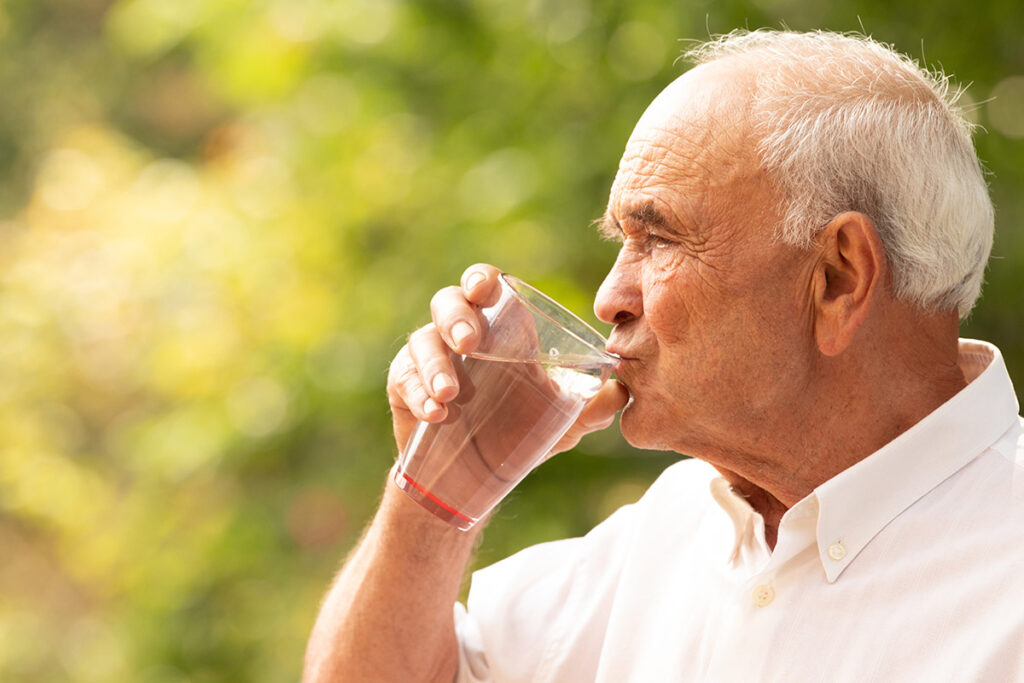
Is it too heavy for them? Or, if they have tremors, is it too light? Do they need a straw? Are they having a hard time seeing a clear glass and need a colored one instead? Do they need a lid to prevent spilling? Something as simple as the cup they are using can make all the difference.
3. Offer a variety of drink choices.
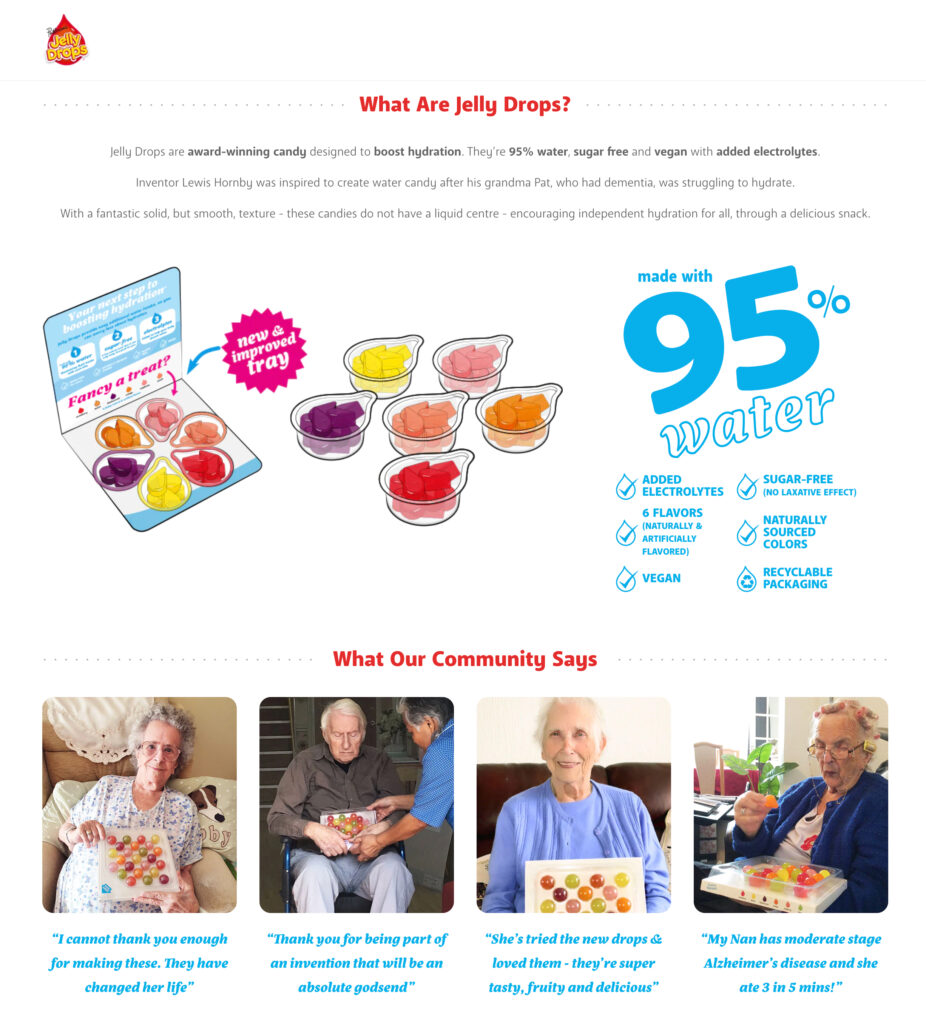
Water is not the only hydrating beverage. You could offer decaffeinated teas, natural juices, or water with electrolyte tablets or flavoring. You can also food as a hydration supplement. Many fruits and vegetables such as cucumber and watermelon have a high water content.
If you’re loved one has a sweet tooth, you can also try jelly drops (https://www.jellydrops.us/), a type of gummy “candy” that is sugar-free and made up of 95% water. These have recently become popular among dementia and Alzheimer’s communities not as a liquid replacement but as a hydration supplement.
Hydration is not only important for our bodies; it’s important for our brains. For someone who is living with dementia, hydration is essential. Talk to your doctor if you think your loved one is exhibiting any symptoms of dehydration, so you can intervene now before it’s too late and develop a strategy to keep your loved one adequately hydrated throughout the day.
Pet Hydration
Also, don’t forget about your pets. They need clean fresh water too. Pets need constant access to a clean and adequate supply of water. The water should be changed at least once but preferably twice a day. We also recommend having two or more water bowls. Keep your pet’s bowls full and use larger bowls that hold an adequate amount of fresh water. It’s also important to keep your pet’s water bowl clean.
